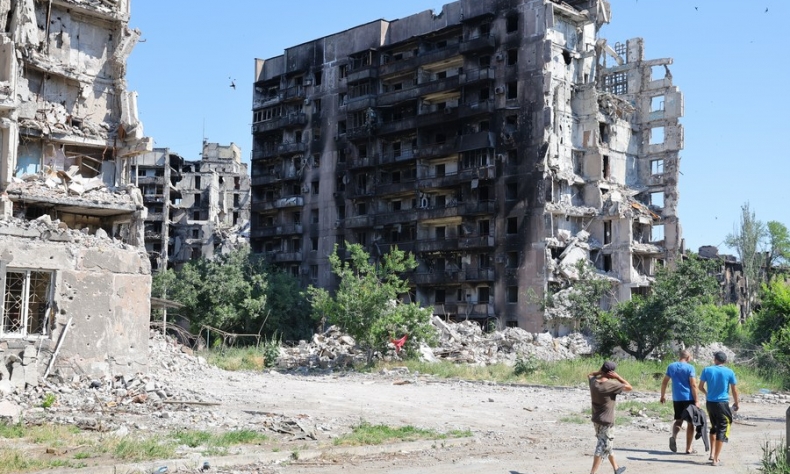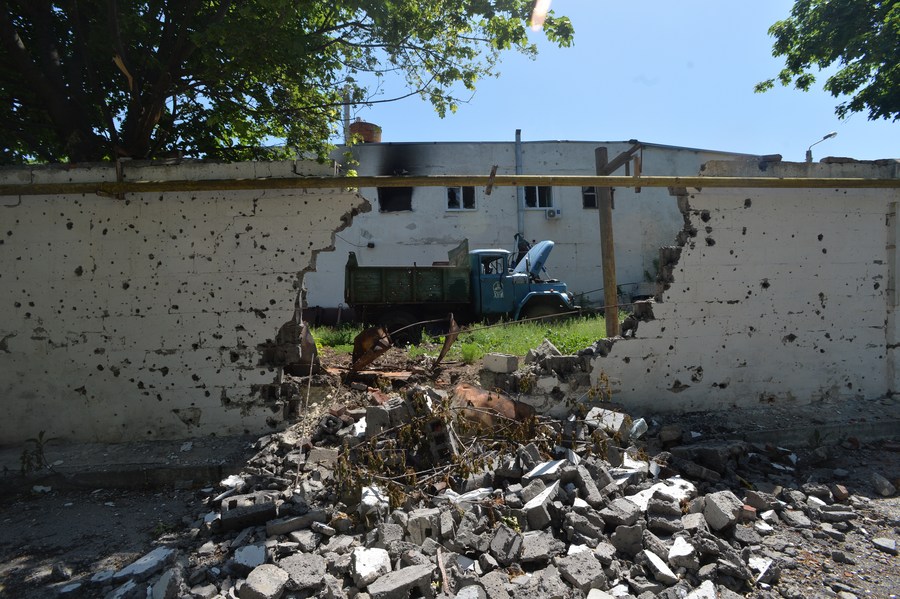War or Peace?

Tragically, the fate of Ukraine does not seem to lie in its own hands, or those of Europe as a whole. To continue the war or to seek peace eventually is a decision left up to Russia and the United States.
“If no one fought except on his own conviction, there would be no wars,” the fictional character Andrei Bolkonsky stated in Leo Tolstoy’s masterpiece War and Peace (1869). Today, the line still applies.
After more than four months of conflict between Russia and Ukraine, the world still awaits any signs of peace in the making.
On June 16, German Chancellor Olaf Scholz, French President Emmanuel Macron and Italian Prime Minister Mario Draghi took the same train to Kiev, capital of Ukraine, for talks with Ukrainian President Volodymyr Zelensky. The day before their departure, Macron publicly called for Ukraine to negotiate with Russia, reiterating that “long-term hostilities with Russia were not a viable solution to European security.”
Tragically, the fate of Ukraine does not seem to lie in its own hands, or those of Europe as a whole. To continue the war or to seek peace eventually is a decision left up to Russia and the United States.
At a time when the West is collectively denouncing Russia, they look the other way when it comes to the U.S.’ role in the conflict. Although the Soviet Union disintegrated over 30 years ago, the U.S. still regards the Russian Federation, the former superpower’s main successor, as one of its major geopolitical opponents.

By constantly compressing Russia’s strategic space, the U.S. was setting traps to lure the country into military action, waiting for it to enter the quagmire of war. On April 26, U.S. Defense Secretary Lloyd Austin made it clear that his country wants to see Russia “weakened,” to certain extent, in the ongoing conflict so that the Russian army can no longer launch or participate in warfare.
Nevertheless, the U.S. underestimates the resilience of the Russian economy and the capabilities of the Russian military while overestimating its own abilities. The plethora of economic sanctions the West imposed on Russia and the ensuing skyrocketing international energy prices have further intensified an already approaching inflation, and a U.S. recession this year now seems more likely than not.
Russia, on the other hand, is disappointing its naysayers, both on the battlefield and the financial market. Just as The New York Times commented on June 10, measures such as sanctions and the withdrawal of Western enterprises from Russia have failed to destroy the Russian economy. According to the International Energy Agency, Russia’s oil export revenue in May increased by 11 percent year on year, and crude oil exports increased by nearly 500,000 barrels per day compared with the beginning of the year.
Speaking at the St. Petersburg International Economic Forum on June 17, Putin announced that Russia’s budget had a surplus of 1.5 trillion rubles ($26 billion) and the consolidated budget a surplus of 3.3 trillion rubles ($57.4 billion) in the first five months of this year. In May alone, the federal budget surplus reached almost half a trillion rubles ($8.7 billion), four fold the May 2021 figure. At the same time, Russia’s inflation level began to drop, and the ruble exchange went on a steady rise.
Right now, Russia has some unexpected bargaining chips. As the U.S. seems unwilling to simply admit defeat, the two sides may not be sitting down at the negotiating table in the short term. But whether it is war or peace, Ukraine and the EU are the biggest victims of all.
 Facebook
Facebook
 Twitter
Twitter
 Linkedin
Linkedin
 Google +
Google +










